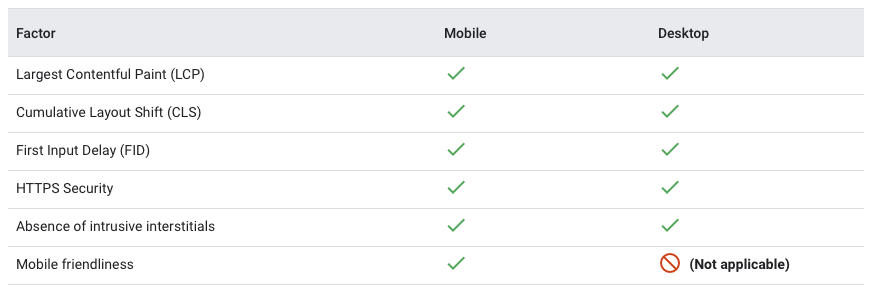Google has confirmed that it is “slowly” rolling out the Page Experience update for desktop search results.
Back in November, the search engine notified webmasters that it planned to extend the Page Experience update – originally limited to just mobile search results – to desktop search results by February 2022.
While the update is rolling out on schedule, the company says the update will not be completed until closer to the end of March.
What You Should Know About The Desktop Page Experience Update
For the most part, the algorithm update looks identical to the update introduced to mobile search results last year. As such, the most important aspect of the update is the use of Core Web Vitals metrics to measure website performance.
“This means the same three Core Web Vitals metrics: LCP, FID, and CLS, and their associated thresholds will apply for desktop ranking. Other aspects of page experience signals, such as HTTPS security and absence of intrusive interstitials, will remain the same as well.”

One factor is being dropped from the desktop Page Experience update, however. For obvious reasons, this version of the update will remove the mobile-friendliness signal which was originally built into the update.
What Does This Mean For Your Site?
If you have been having good performance on mobile search results, you are probably fairly safe from the newer desktop version of the Page Experience update. However, if you’ve seen drops in search visibility or performance from mobile searches in the past year, this update is likely to compound your pain.
To help you predict how the algorithm update will impact you, Google Search Console is launching a new report specifically dedicated to Page Experience metrics for desktop versions of sites.
This report is available in the Page Experience tab of Google Search Console, immediately under the mobile report.



